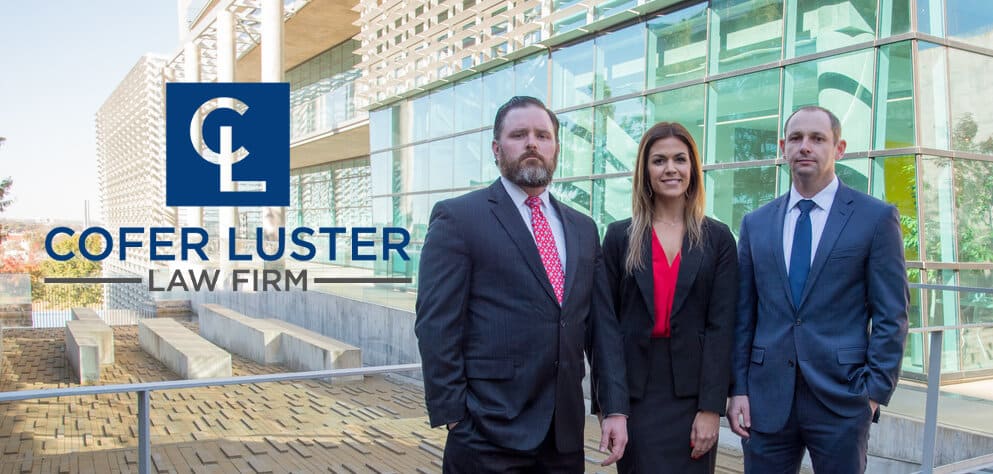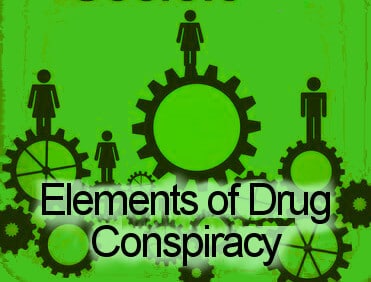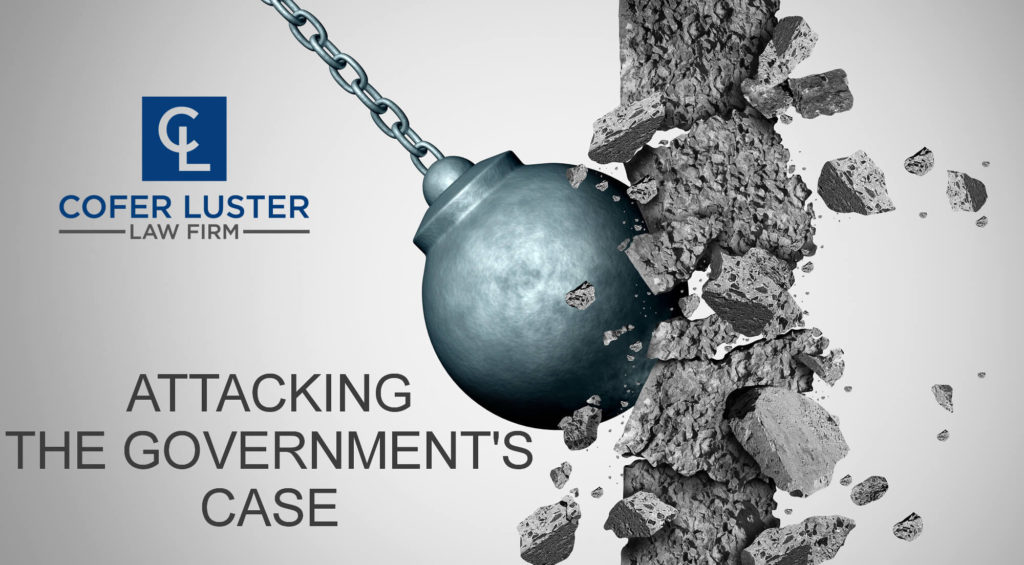
Federal Drug Conspiracy Attorneys
Charges for drug possession, trafficking, and sales are usually straight forward. But, federal conspiracy drug charges can be complicated. Many criminal defense attorneys do not practice in federal court, because the investigation, prosecution, and practices can be intimidating. Our attorneys have experience fighting federal cases throughout the Northern District of Texas. You need experience, skill, and energy on your side, whether you are fighting at trial or presenting objections to the PSR.
It can be a bewildering concept, but under federal law, “conspiracy” to commit a drug crime will likely subject you to the same penalties as if you were involved in every part of the offense. These broad and far reaching laws can apply in various circumstances, and it’s not necessarily required for an someone to know all the details of the conspiracy to be culpable (legally deserving of blame). In fact, we often see clients who were not even aware they were liable until charges were filed against them.
These cases cannot be taken lightly. An experienced lawyer can be your most valuable ally when dealing with conspiracy or any federal drug charges. Contact the Fort Worth defense lawyer Cody Cofer if you’re being investigated in connection with a federal drug conspiracy in Texas. We understand what constitutes a conspiracy, and can help you build the best defense possible.
Schedule a free and confidential consultation by completing our online form or call 682-777-3336 today.

Cody Cofer, Federal Drug Defense Lawyer
Cody Cofer has been practicing criminal law for over 10 years. He has defended hundreds of federal cases and more than a thousand criminal cases. The Texas Board of Legal Specialization recognizes Cody Cofer as an expert in Criminal Law. Before returning to private practice, he was appointed as an Assistant Federal Public Defender for the Northern District of Texas. He wants to put this experience, expertise, and skill to work on your federal drug conspiracy charge.

Elements or Required Proof
Many people have the common misconception that to be guilty of conspiracy, you have to be aware of the full scope of a drug dealing or trafficking operation. This is not the case.
The United States Code (U.S. Code) Title 21 Section 846, makes it a crime for anyone to conspire with someone else to commit a violation of federal drug (controlled substances). A “conspiracy” is an agreement between two or more persons to join together to accomplish some unlawful purpose. It is a kind of “partnership in crime” in which each member becomes the agent of every other member.
For someone to be found guilty of federal drug conspiracy, the prosecution must prove beyond a reasonable doubt:
- That two or more persons, directly or indirectly, reached an agreement to manufacture, distribute, dispense, or possess with intent to manufacture, distribute, or dispense, a controlled substance;
- That the person charged knew of the unlawful purpose of the agreement;
- That the person charged joined in the agreement willfully, that is, with the intent to further its unlawful purpose.
A person can become a member of a federal drug conspiracy without knowing all the details of the unlawful scheme or the identities of all the other alleged “conspirators.” If someone understands the unlawful nature of a plan or scheme and knowingly and intentionally joins in that plan or scheme on one occasion, that is sufficient to convict him even though he may not have participated before and even though he may have played only a minor part.
The prosecutor does not need to prove that the alleged conspirators entered into any formal agreement. Conspirators do not have to directly state between themselves all the details of the scheme. Similarly, the government need not prove that all of the details of the scheme were actually agreed upon or carried out. A conspiracy does not have to be successful, meaning there may not have actually been any drugs distributed or manufactured.
Understand however, that mere presence at the scene of an event, even with knowledge that a crime is being committed, or the mere fact that certain persons may have associated with each other and may have assembled together and discussed common aims and interests, does not necessarily establish proof of the existence of a conspiracy. A person who has no knowledge of an agreement to distribute or traffic drugs, but who happens to act in a way that advances some purpose of a conspiracy, does not thereby become a conspirator.
While specific knowledge is necessary for some federal conspiracy laws, it is not an element of a drug distribution or trafficking schemes or plans. For you to be convicted, the prosecution will merely have to establish that you knew the unlawful purpose of the conspiracy, if not its full extent and continued in your involvement.
This can seem subjective, especially if you believe that you didn’t actively participate in any illegal activity. However, if you are caught up in a federal drug conspiracy investigation, talk to a lawyer experienced in this area to understand the nuances of the law and whether your actions constitute participation.

Penalties for Drug Conspiracy Charges
The United States prescribes mandatory minimum drug sentences for conspiracy to commit a drug crime. The federal sentencing guidelines for drug conspiracy charges are based largely on the amount drugs involved in the conspiracy and a person’s criminal history.
According to federal law, the penalty for conspiring to commit a drug crime is the same as the punishment for the crime itself. You face a minimum of 10 years imprisonment for conspiracy to manufacture or distribute:
- One or more kilograms of any substance with a detectable amount of heroin;
- Five or more kilograms of any substance with a detectable amount of powder cocaine, crack, coca leaves or derivatives thereof;
- 100 grams or more of pure PCP, or at least one kilogram of any substances containing PCP;
- 400 grams or more of any substance containing a detectable amount of fentanyl;
- 10 grams or more of any substance containing LSD;
- 50 grams or more of a methamphetamine or its derivatives;
- 1000 or more kilograms of a substance containing marijuana; or
- 1000 marijuana plants, regardless of size.
In addition to possible imprisonment, you may face monetary fines and heightened penalties if you have prior convictions on your record. If your actions resulted in bodily harm, death, or damage to another, your penalty will also likewise increase.
If the drug conspiracy involved smaller amounts, but more than one-tenth of those listed, you would still face harsh punishments, including a minimum of five years in prison. As with larger amounts, your punishment will also increase in severity if you injure or kill anyone, or have prior convictions.

Possible Defenses
Despite the harsh sentences attached to a drug conspiracy conviction, an experienced federal criminal defense attorney can help review your options and build an effective strategy.
There are several defenses against a conspiracy conviction, including:
-
-
- No Agreement: The elements of a drug conspiracy charge do not require a formal agreement. This means that prosecutors may try to show an agreement existed where none did. If you can convince a jury that no agreement was made, you may being convicted.
- No Act in Furtherance: While there are few circumstances where ignorance can be used an excuse, if your attorney can show that an alleged act was not intended to further the conspiracy, it can seriously improve your situation.
- No Knowledge of the Agreement: You were unaware of the unlawful agreement. While no formal agreement is required for a drug conspiracy, it is required that the actors have knowledge of the unlawful agreement. If you can convince a jury that you had no knowledge of the agreement (or that you didn’t know the agreement was unlawful), you should be found not guilty.
- Duress or Legal Excuse: The agreement was made under duress. You may be able to argue that you were coerced into agreeing to participate. For example, if you became involved with a drug distribution ring, and the other members threatened you to secure your involvement.
-
Contact Cody Cofer to Discuss Your Defense
A federal drug conspiracy charge is complicated and requires attention from an extremely skilled federal drug conspiracy attorney with a successful record in state and federal court. Cody Cofer is a former Assistant Federal Public Defender for the Northern District of Texas, and he is Board Certified in Criminal Law by the Texas Board of Legal Specialization.
We are well-equipped to deal with your situation and strive to give out clients every opportunity to set the record straight. Let our Fort Worth drug crimes lawyers prepare your defense, and protect your rights.
Contact us online or call (682) 777-3336 to schedule a free and confidential consultation.

